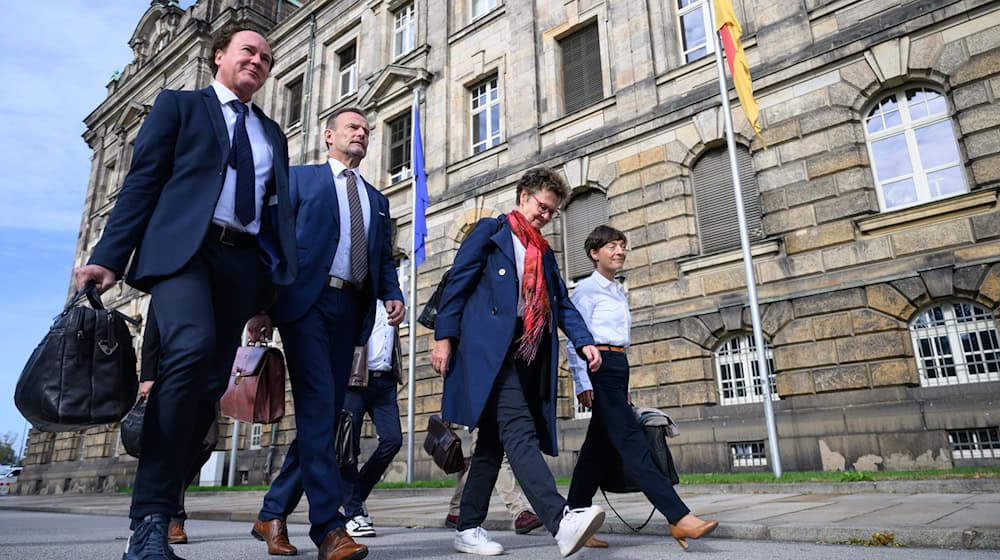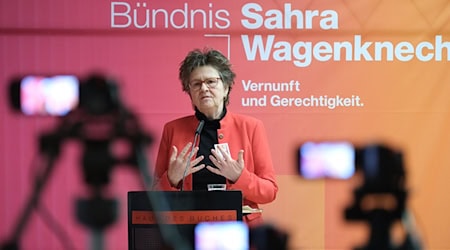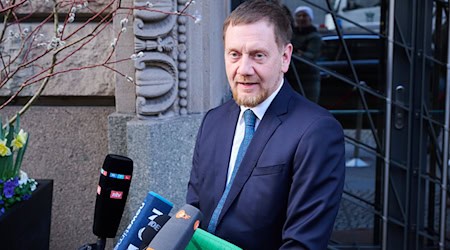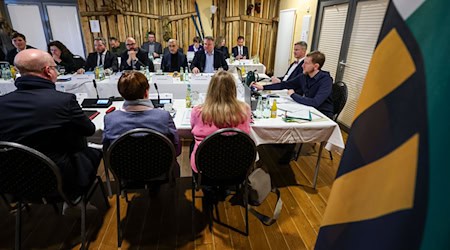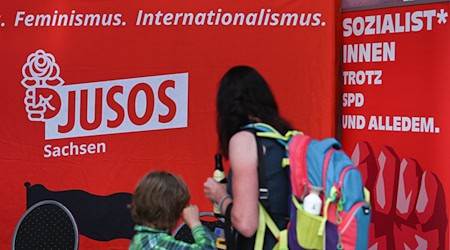The strongly conservative Heimatunion in the Saxon CDU is pushing for a minority government in the Free State. "It won't be comfortable, of course, but it will be the best thing for Saxony," Ulrich Link, spokesman for the association, told the German Press Agency. He justified this with reservations about the Sahra Wagenknecht (BSW) alliance. The talks between the CDU, SPD and BSW were viewed with concern. As in 2019, it is about the integration of a third, "strongly ideological partner".
Home Union for changing majorities
In its government program, the CDU has shown how Saxony should be developed for the benefit of its citizens, said Link. "We are convinced that a majority can be found in the new state parliament for every single point of this program - but with members of different parliamentary groups, with changing majorities. But without new disadvantageous compromises that harm Saxony." This time, too, the election has led to a result that does not allow for a conventional government constellation.
"From the point of view of the Heimatunion, a repeat of the mistakes of 2019 must now be avoided so that a new state government free of ideology is fully committed to the interests of the Free State and its citizens," explained Link. Even back then, the CDU/CSU and other forces were already arguing for a minority government. The coalition that was then formed with the participation of the Greens confirmed that this "ideology-driven partner made politics for Saxony very difficult".
Kretschmer considers a minority government to be the worse option
Prime Minister Michael Kretschmer has so far rejected a minority government. "The difference is: in a minority government, you are in negotiations every day. With every topic, every law, every budget, every small proposal, the discussion starts all over again. That ties up an incredible amount of energy. That's why a coalition is always the better way," he said in a recent interview.
Forces within the Saxon CDU in favor of dialogue with the AfD
In the previous week, CDU members from the Leipzig area had already spoken out against an alliance with the BSW. The statement, which was also signed by two former CDU ministers, called for a "new political culture of cooperation". It said that we must also talk to the AfD and need "bridge builders and not firewalls". As long as political opponents do not use violence, they should "not be seen as the enemy". Central political goals of the CDU could not be realized "red-green-dark-red".
Former CDU parliamentary group leader Frank Kupfer, who also served as Minister for the Environment and Agriculture, was one of the signatories of the letter and reiterated his position. "30 percent of voters voted AfD. And you can't just put these people in a corner, you have to talk to them," he told the Sächsische Zeitung newspaper. He was not interested in coalitions, but in talks. They could be over after an hour, but then at least they had tried.
"Familiarization talks" between CDU, BSW and SPD continue
In the next three days, the three potential partners of a new government - CDU, BSW and SPD - want to continue their so-called familiarization talks. BSW chairwoman Sabine Zimmermann assumed that they would be concluded this week. At the weekend, she made it clear that the "time for jibes" must now be over. "The CDU must decide which path it wants to take. If it opts for the BSW, there must be negotiations at eye level," she told dpa.
In the state elections on September 1, the CDU was the strongest party with 31.9 percent of the vote, ahead of the AfD (30.6 percent). This is no longer enough to continue the old coalition with the Greens (5.1%) and SPD (7.3%). The CDU/CSU is therefore absolutely dependent on the BSW (11.8), as it strictly rules out a coalition with the AfD.
Copyright 2024, dpa (www.dpa.de). All rights reserved

